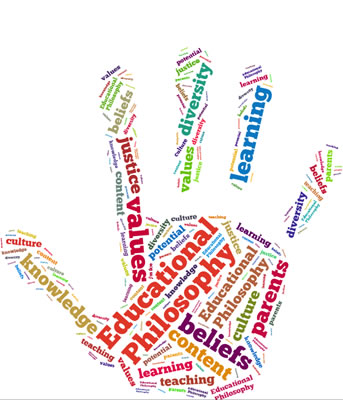What is the philosophy of education?
Education is that process in which you impart knowledge and skills to your children, so that they may make their mark on the world. The philosophy of education generally involves asking what knowledge is, how it is transmitted to others and the purpose of doing so. Education can be formal or informal. Hence, the philosophy of education relates to teaching practices, principles of learning, and their role in the development of individual personality.
In practice, it is the study of how to best develop human potential in all its aspects: physical, emotional, social, and mental. The philosophy of education can also be defined as the study of how to best educate people. It considers questions such as: What is the purpose of education? How does one get an education? What are its goals and methods? The philosophy of education may address these questions from either a theoretical or practical perspective. It is the study of how to best develop human potential in all its aspects: physical, emotional, social, and mental.
Educating the Child as a whole person
Education aims at providing knowledge and skills to enable students to become productive members of society. But education does not stop with imparting knowledge and skills; it also aims at creating people who can think independently, critically analyze issues and problems, and be creative in their approach. Thus education should be more than just imparting information into students’ heads; it should also help them develop their critical abilities so that they can analyze situations from different perspectives and come up with solutions for themselves.
Equality of Educational Opportunity
Education is a fundamental right for all human beings. This means that every individual has the right to receive primary education from elementary school until high school graduation. It is also the responsibility of governments (national or sub-national) to provide primary education for all children during their childhoods up until they reach 18 years old or beyond. This does not mean that everyone who wants an education will receive one; however, it does mean that governments are responsible for providing equal opportunities for all individuals regardless of gender or race.
Child’s mental development
In the early years, children develop their mental abilities through play and exploration. Children learn about their physical world through sensory experiences such as seeing, hearing, and touching. They learn about language by interacting with other people and objects in their environment. This process is known as socialization. Socialization involves learning how to behave appropriately in different situations by observing others’ behavior and copying it when appropriate.
Permanent and Intrinsic value of education
Education has a permanent and intrinsic value. Every human being must seek education. Education helps man to know himself and others, to develop his faculties and potentialities. It gives knowledge and wisdom which helps to understand this world, know about its past and present, and also it’s future. Education helps man to develop his mind, body, and soul. It makes him physically strong, morally upright, mentally alert, and spiritually enlightened.
Conclusion: Philosophy of Education
The philosophy of education educates the mind to think critically and logically as well as how to use the information available from different sources. It teaches people how to create sound decisions with minimal or no bias. Philosophy, in general, is all about thinking. In order to start a philosophical debate, all one needs is an inquisitive mind, the ability to communicate thoughts, and a dash of imagination. In education, students are taught how to learn and how to develop their potential by encouraging them to think philosophically.







